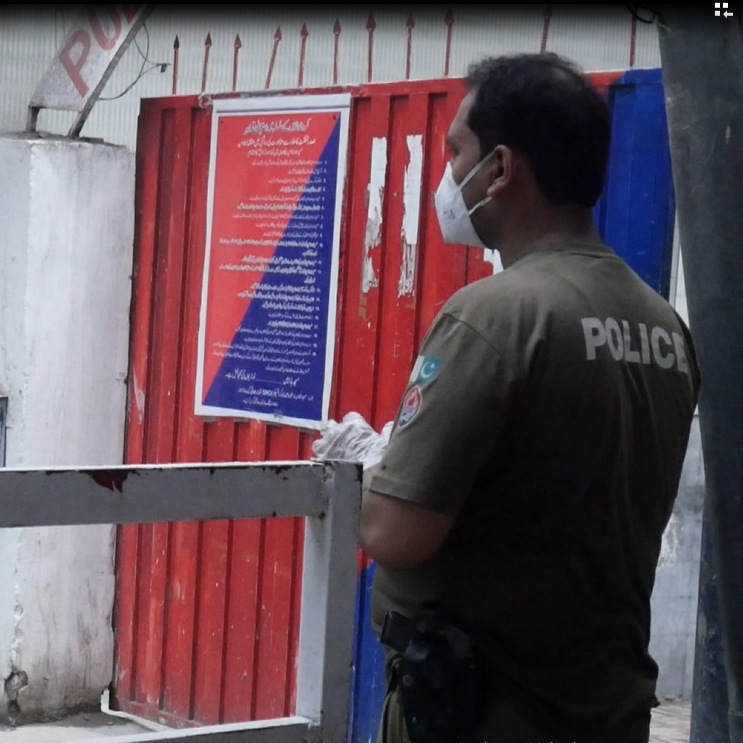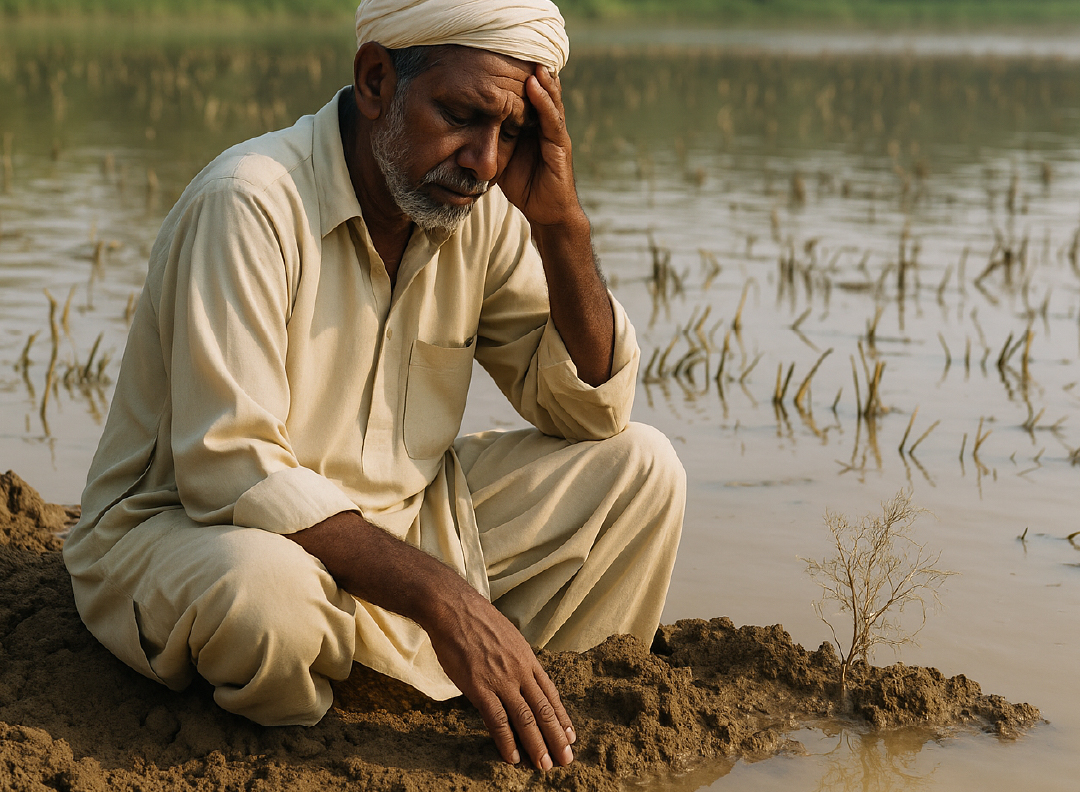“If the court did not grant the killers of four family members bail, my younger brother would have been alive today.”
These words are from Muhammad Mansha Dhillon, a resident of Sheikhpura, who is grieving the deaths of his three brothers and two nephews.
Mansha Dhillon, wiping tears from his eyes, says that the ‘enemy’ who had already killed two brothers and two nephews mercilessly took the life of his younger brother Safdar on October 6, 2023.
According to him, 56-year-old Safdar Dhillon was returning home after the morning walk when two individuals on a motorcycle fired at him. He sustained severe injuries and was rushed to Civil Hospital, but unfortunately, he couldn’t survive.
According to police records, the case of Safdar Dhillon’s murder has been filed based on the complaint of his wife against Faisal, Nasir, and two unidentified individuals. The motive behind the murder stated in the FIR is family enmity.
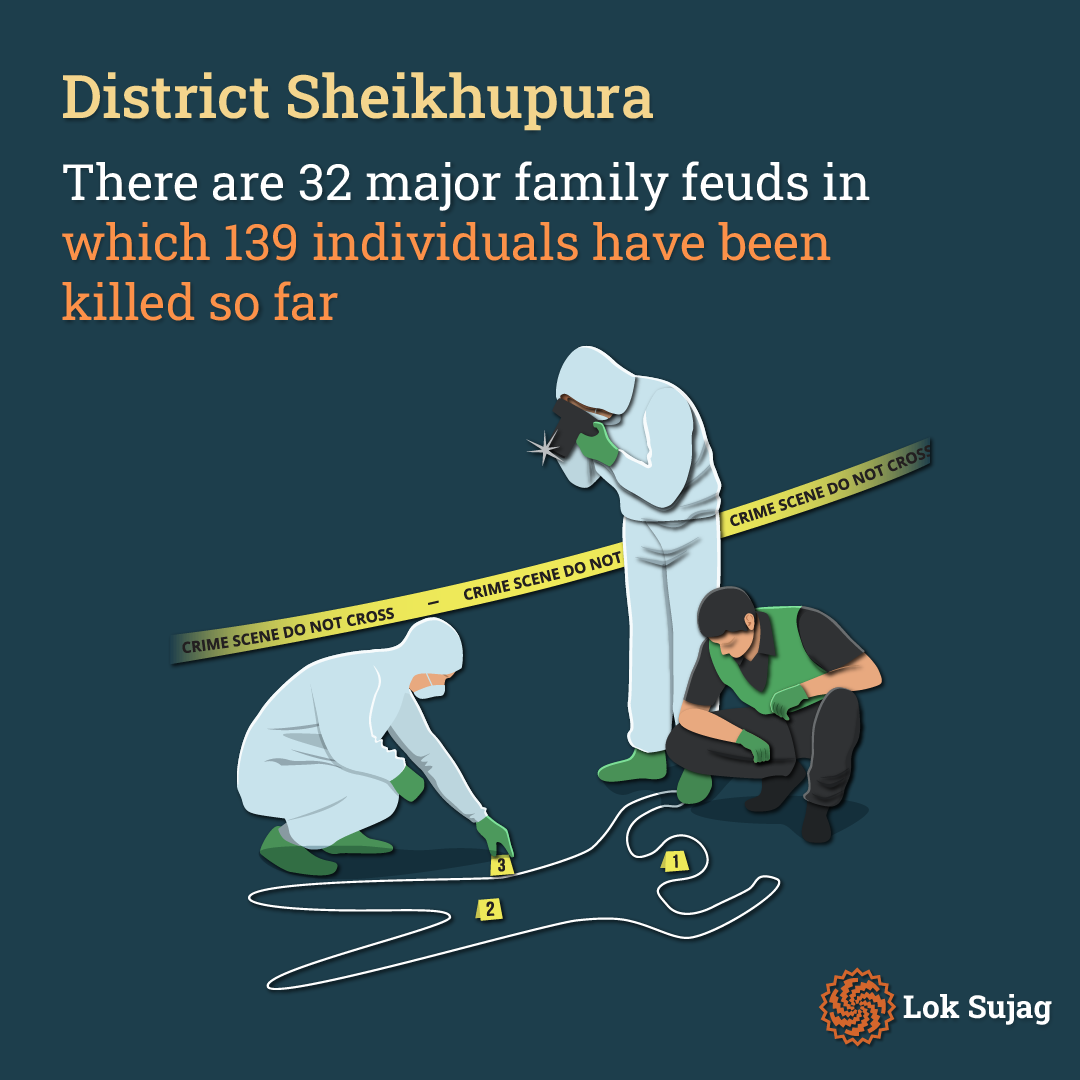
Mansha Dhillon says that a considerable amount of time has passed, but the police have not been able to apprehend the murderer yet.
“Now the situation is that the remaining children and elders of the family are confined within their own home, and the police are on watch day and night.”
Seventy-one years old, Mohammad Mansha is a resident of the Ghang Road area in Sheikhupura and a retired employee of the Pak Airforce.
According to him, in 2013, the only discord within his family was caused by the fact that his nephew, Zaheer Abbas, had remarried. Since his first wife was from a family of relatives, Mansha insisted he divorce his second wife, but the nephew did not comply.
Mohammad Mansha Dhillon says that on December 1, 2014, Zaheer Abbas, his father, mother, uncle Mohammad Rehan, and younger brother Adeel Abbas went to the Dera Ghulam Ghaus area for a funeral. After attending the funeral, when they were returning home, individuals named Tariq, Naseer, Faisal, and Qaisar allegedly opened fire on them.
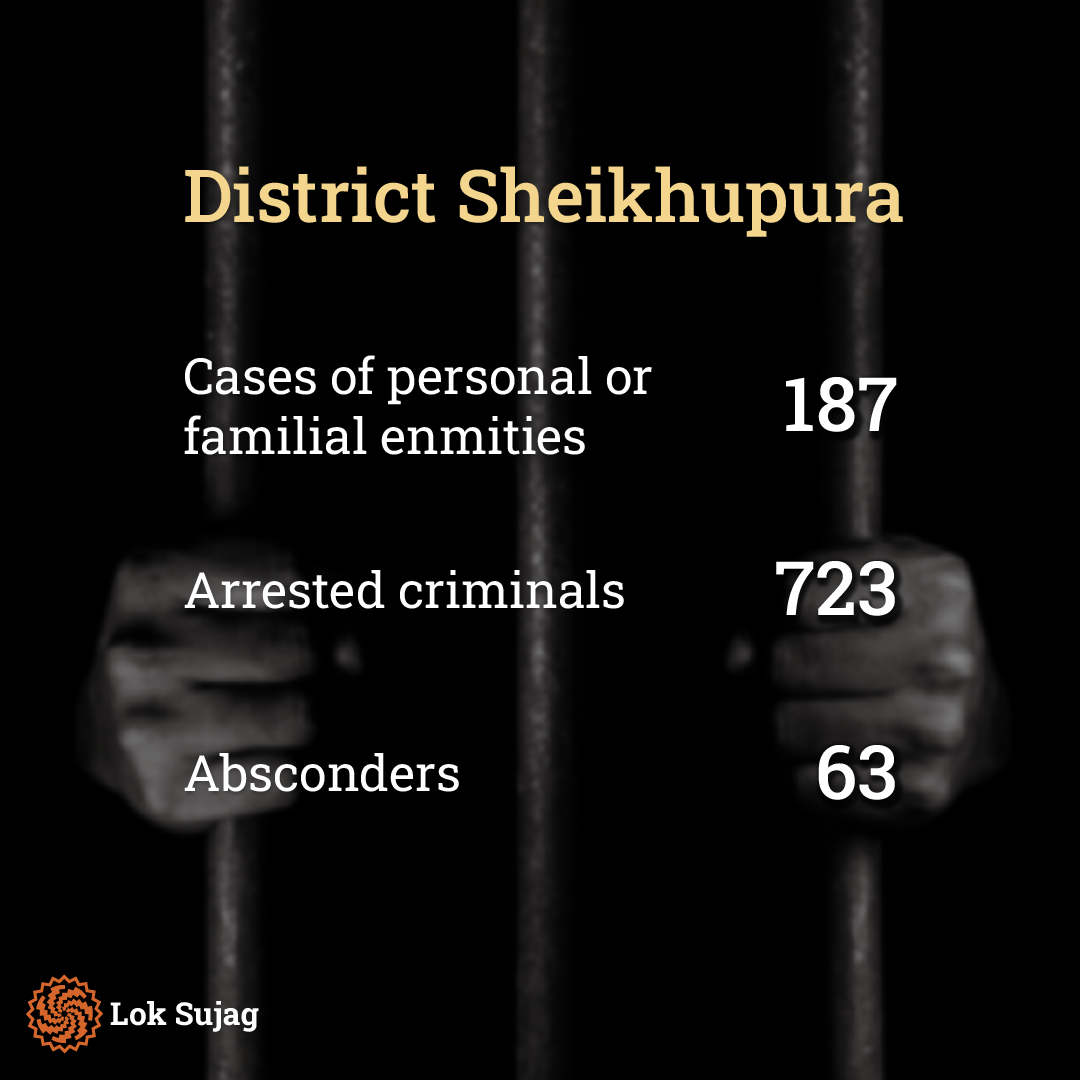
As a result, brothers Mohammad Abbas and Mohammad Rehan, as well as both nephews Zaheer Abbas and Adeel Abbas, lost their lives on the spot.
“At that time, I was employed in Abu Dhabi. Upon receiving the news, I immediately returned and personally took care of the burial of my brothers and nephews. After that, I couldn’t go back to Abu Dhabi because, at that time, my family needed me.”
Mohammad Mansha says that the case of this murder was registered at the Bakhki police station, but the suspects remained fugitives for two years, and the police could not arrest them. Two years later, when the suspects were apprehended, three were released on bail after two years. The fourth suspect, Faisal, was granted bail by the Supreme Court six years later.
He says that when the suspect, Faisal, was released, he continued threatening them, about which the police were informed. However, since he did not appear in court and became untraceable, the police couldn’t reach the suspect.
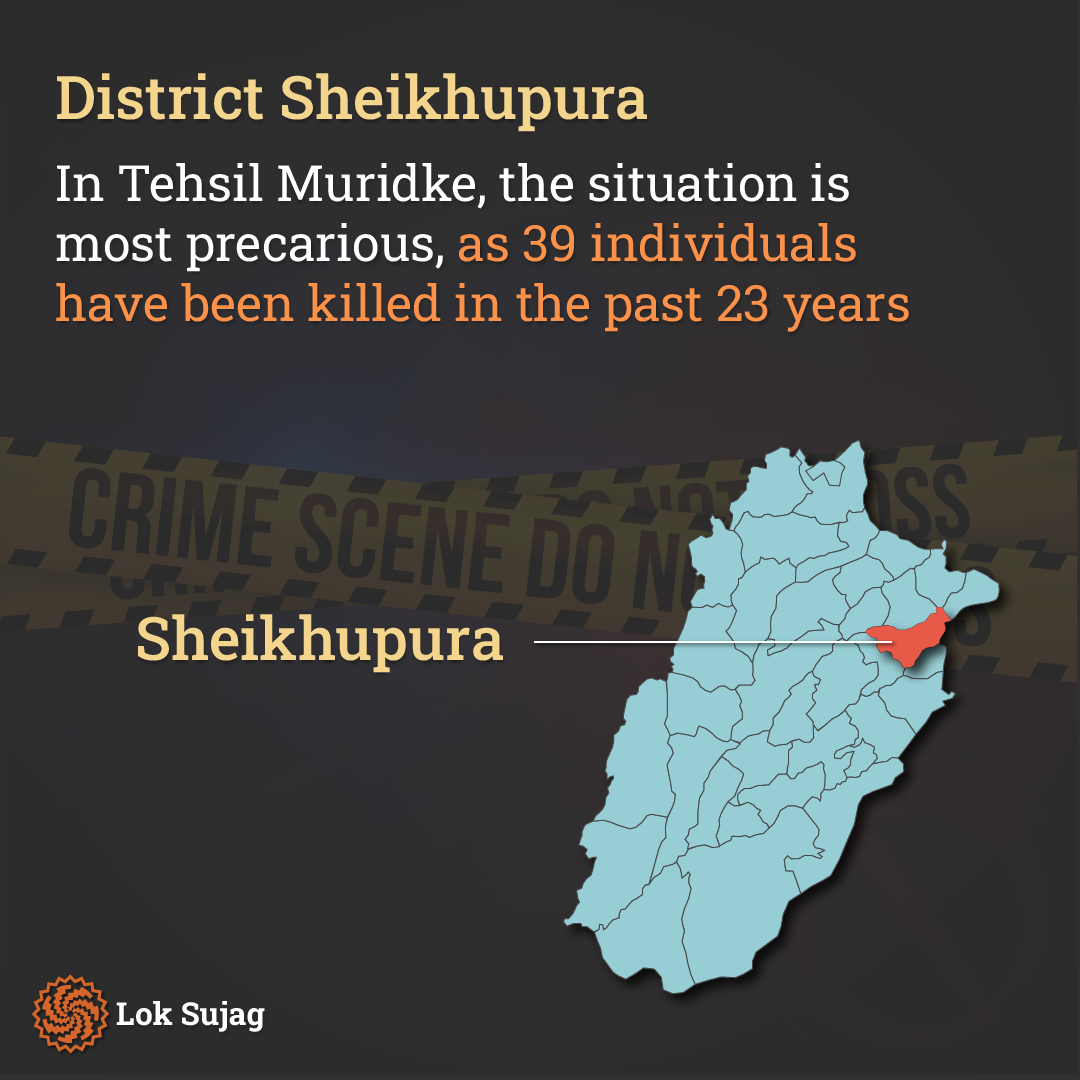
Regarding the suspect, Faisal, he claims that he is so dangerous that he murdered his wife on suspicion of having illicit relationships. He is wanted by the police in this case as well.
The district of Sheikhupura has dozens of such incidents of familial or personal enmities.
According to police records, there are 32 major familial hostilities in the district, resulting in the deaths of 139 individuals so far.
According to the police, in these 32 personal or familial feuds, 187 cases have been registered, leading to the arrest of 723 nominated offenders and their facilitators. However, 63 accused absconders in these cases have been declared as wanted by the courts.
According to the police, regarding familial feuds, Tehsil Muridke is the most dangerous because, in the last 23 years, 39 individuals have been killed here. While the police have arrested 250 accused in these cases, 44 suspects remain at large and are listed as fugitives in police records.
Tehsil Narang Mandi has 32 reported cases of such hostilities, 19 in Farooqabad and 17 in Town Bheeki.
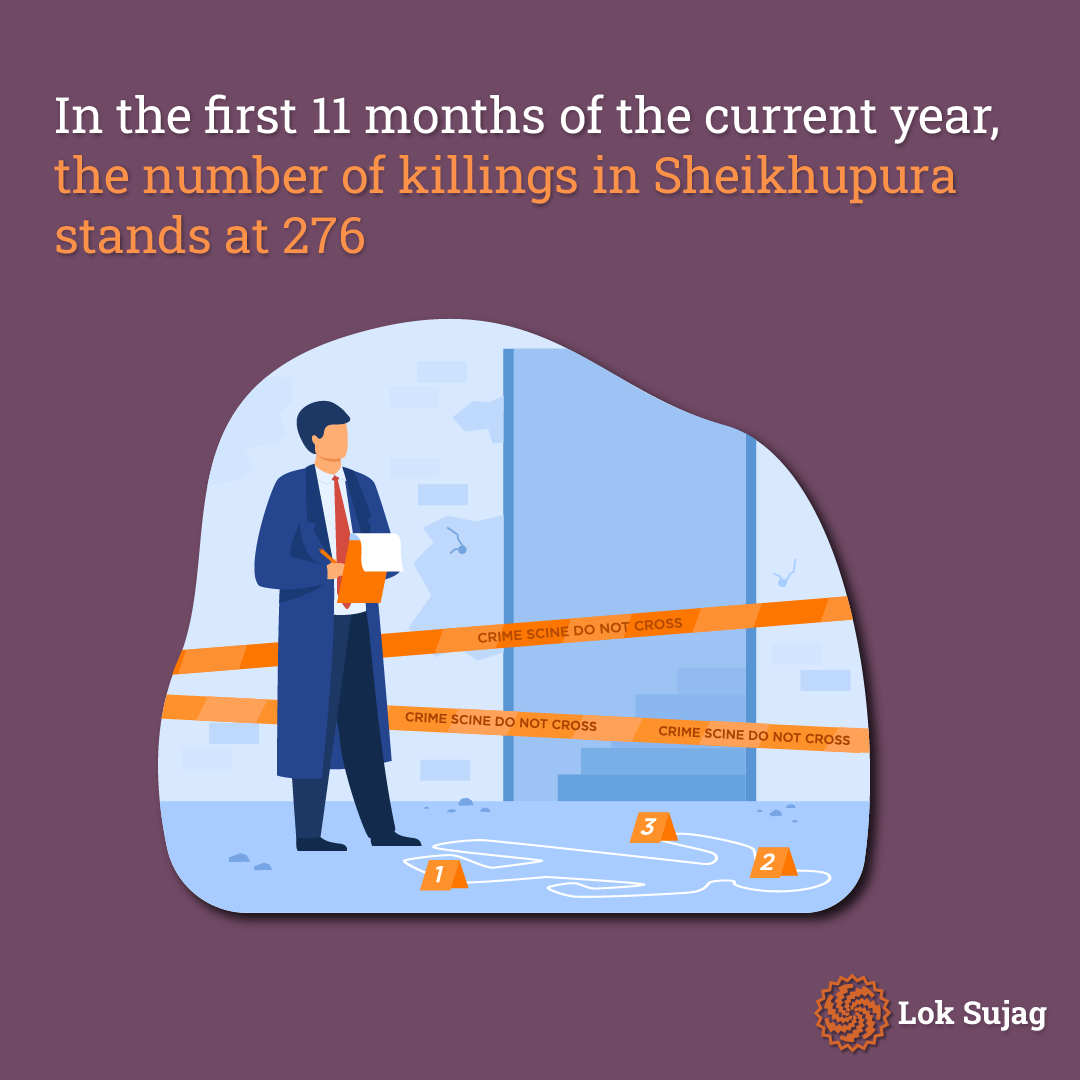
Due to longstanding enmity, nine individuals have been killed in the areas of Thana Ferozwala. In Safdarabad, 23 people have lost their lives to date.
According to police officials, the most dangerous familial feud is in the Khanpur area of Sheikhupura, involving the political leader Iftikhar Dogar’s and Shafiq’s group. The dispute, which began in 1999 over agricultural land conflicts, has claimed the lives of 20 individuals from both groups.
Out of the 83 nominated suspects from both groups, 82 have been apprehended.
Even now, the situation for both groups is such that the members of both families do not leave their homes without gunmen.
Mohammad Ajmal, a journalist reporting for various newspapers and TV channels in Muridke, has also covered reports on these family feuds.
According to him, in Sheikhupura, most family feuds start from minor disputes. Citing the example of hostility between the Qasai Group and Butt Group in Muridke Tehsil, he says that in 2006 cattle of one group trespassed into the fields of the other. This led to verbal altercations between the two groups. One day, the dispute between the two groups on the issue of soiling in the neighbourhood escalated into a physical fight.
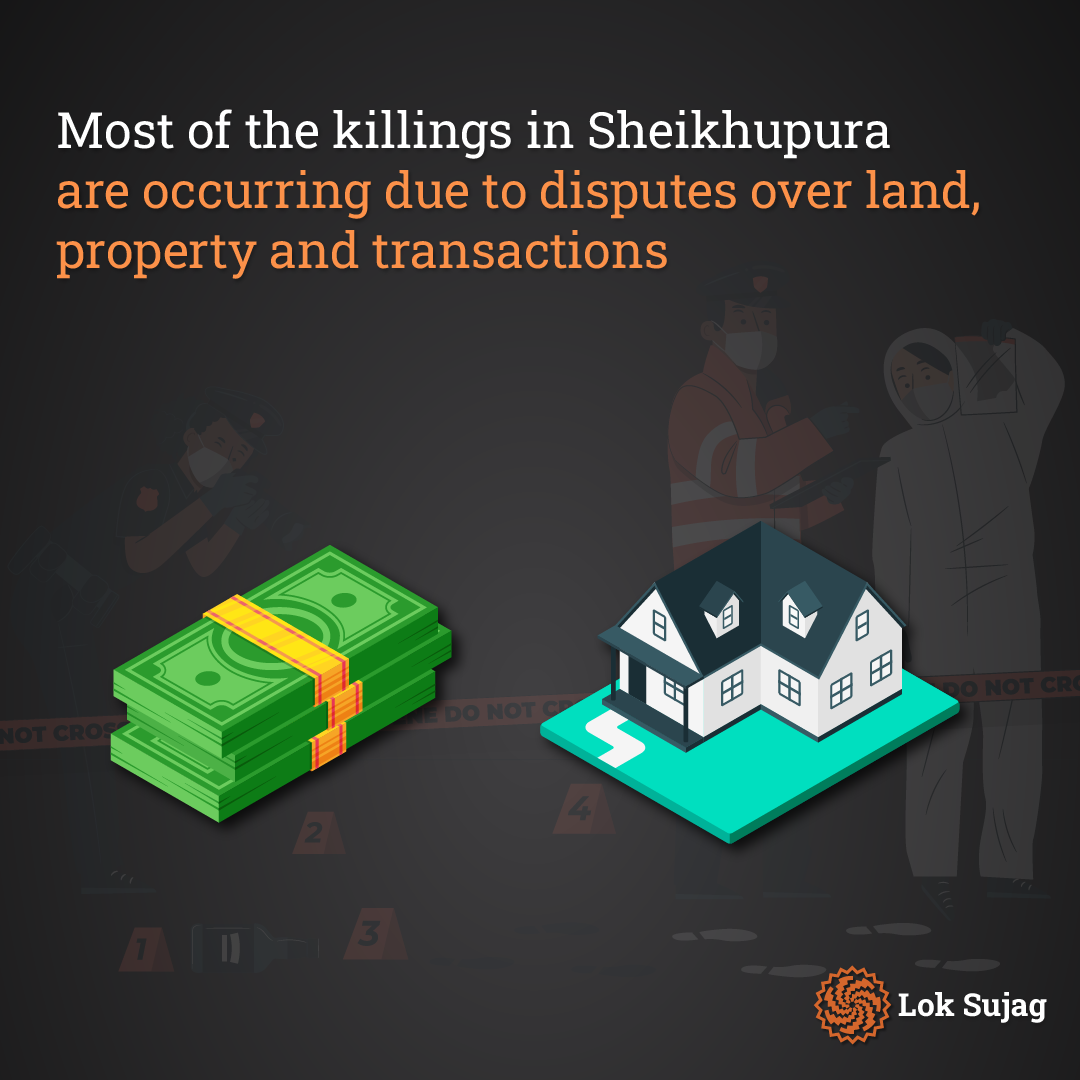
Since then, 20 members from both “parties” have lost their lives.
In his opinion, this feud has not ended because both families have made it a matter of their ego. At one point, five members of the Butt Group were killed in a single day.
He says that in 2018, in Muridke, Inspector Zahid Rathore of the Punjab Police was killed along with his two colleagues due to family enmity.
Similarly, a famous landlord and member of the Provincial Assembly from Jandiala Sher Khan, Sher Akbar Khan’s father Mahmood Akbar Khan, who served as a member of the National Assembly in 1998, has also become a victim of family enmity in which he has lost his five relatives.
He points out that other crimes have also increased in this area due to these hostilities. People embroiled in family feuds do not limit themselves to their rivals. They often engage in thefts and extortions because they consider themselves outside the reach of the law.
Consequently, they resort to violence against anyone who opposes them.

According to the police records in Sheikhupura, during the last 12 years, a total of 2,918 individuals have been killed, including various types of crimes related to family feuds in the district.
Similarly, in the first 11 months of the current year, there have been 276 homicides in Sheikhupura. According to Muhammad Ajmal, these statistics are extremely alarming.
According to Mansha Dhilon, his family has used all legal channels to bring criminals to justice and ensure they face legal consequences. However, these efforts have been met with nothing but disappointment.
“Now, they want to kill every member of my family. That’s why we are all in hiding. The elder son of the murdered brother, Safdar, is a student in the tenth grade, and the younger one is in the seventh grade. But due to fear, they have not been able to attend school for the past two months.”

He says, how can any son bear that his father’s killers go unpunished? The flames of enmity are naturally burning within them, right?
“There is something similar going on inside my nephews, which is evident in their attitude. If they don’t get justice, no one knows what they will do in the future or what will happen to them.
Nevertheless, I always advise them to remain calm in every situation. One reason for this is that if these young ones confront the enemies, they might not forgive them either.”
Muhammad Ajmal is of the view that there is also a clan system in Punjab. Everyone considers their clan superior to others. Some sayings and proverbs related to certain clans have been popularised, labelling one clan as a coward and another as brave. “This is also one of the reasons for these hostilities.”
District Police Officer Sheikhupura, Zahid Nawaz Marwat, also considers the desire for “Chaudrahat/supremacy” a significant reason for these hostilities.

In his opinion, opponents are in a race to establish themselves as the dominant force or powerful figure in the region. This ongoing competition doesn’t allow them to settle for reconciliation and compromise.
“How dare someone pick up a fight with us? Such inflated egos are also fanning small disputes to turn into enmities.”
He believes that the sluggishness of the justice system in hearing cases contributes to prolonged enmities. Due to delays in hearing cases, legal proceedings continue for extended periods.
“If, based on legal loopholes, the accused are declared innocent, the heirs of the deceased, overwhelmed by emotions, often take matters into their own hands seeking revenge.”
Qasim Iqbal Shakir, a lawyer practising in Lahore High Court and specialising in cases related to military courts, belongs to Sheikhupura. Since he is involved in many cases related to killings or attempted killings, he believes that most of the incidents of murder in Sheikhupura are driven by disputes over land, property, and transactions.
To him, family enmities are a severe form of ordinary conflicts in which ego is also involved.
He says that the police negligence in initial investigations benefits the culprits.
Also Read
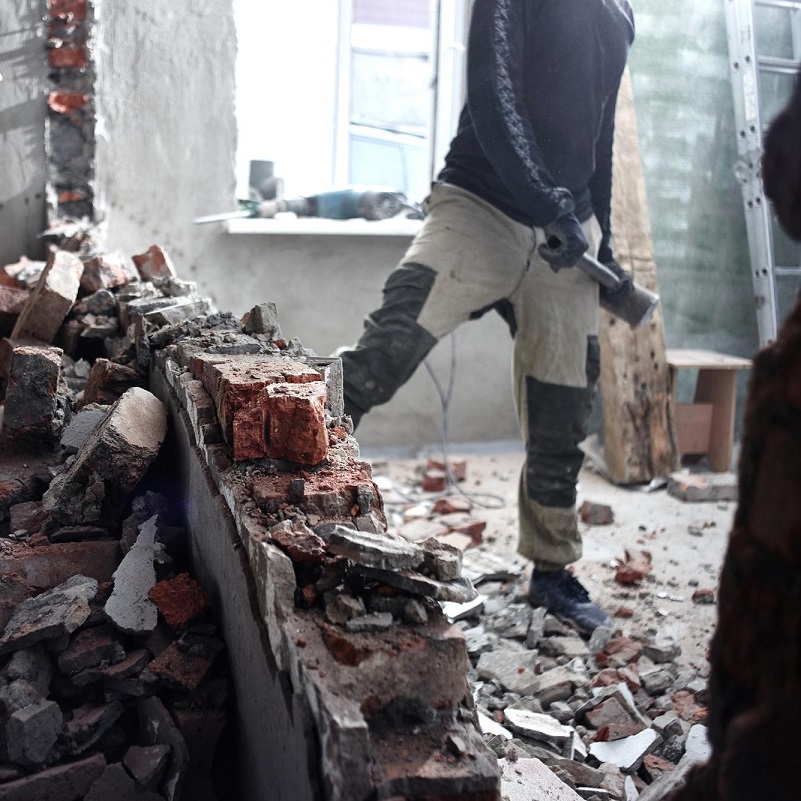
In a quiet village, a loud battle: The ongoing struggle over minarets
“Police still follow the practice that if a murder occurs, they detain many people based on suspicion, and then, even on concluding, they lack proper training to present material evidence. Another reason is the absence of credible witnesses. Unbiased witnesses do not come forward in court due to the ensuing distress or intimidation.”
In his opinion, four to five years later, courts are not presented with substantial evidence based on which the perpetrators can be convicted, so most criminals are acquitted.
Iqbal Shakir said that if the police arrest suspected fugitives quickly, the conflict can be resolved soon. However, when the accused escapes to other cities, the police do not arrest them despite having information because they do not have enough funds to cover their travelling expenses.
“There are four seats in the National Assembly and eight seats in the Provincial Assembly in the city, but no politician has attempted to reconcile between two opposing groups. They remain impartial in such matters due to the fear of the impact on their votes.”
He says that the government should prioritise this issue and form committees involving various political figures to play a role in ending the family feuds in the district. If this is done, the situation can change within a year.
District Police Officer Zahid Nawaz Marwat, Sheikhupura, is optimistic that the situation will improve soon. As he explains, the Caretaker Punjab government has taken the step to reintroduce an effective Numberdari system, which has also been initiated from Shekhupura district.
“It is hoped that these Numberdars will play their role in reconciling between the rival families.”
He believes that besides the police, community leaders can also play a significant role in ending these hostilities. He says that in the Saddar Farooqabad area, nine people from four families had been killed, and these families were enemies of each other. However, some respected individuals in the community intervened and facilitated reconciliation between them. Now, their enmity has turned into friendship.
Published on 30 Nov 2023
